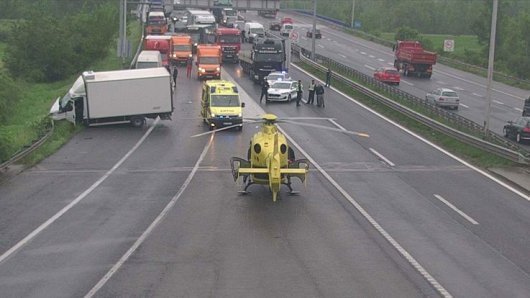Administration Minister Arsen Bauk on Monday commented on a study of the Institute of Economics showing that the number of towns and municipalities in Croatia should be reduced, saying that the study showed what was already known - that the current organisation of local self-government units was unsustainable and needed to be changed.
"But when we speak about the system we are not talking only about the number of local self-government units but primarily about their function."
Addressing reporters in parliament, Bauk said that Croatia was one of Europe's most centralised countries.
"There is no doubt that the powers of counties, towns and municipalities as well as of the state should be redefined in order to determine the number of local self-government units," said the minister, adding that he hoped this would be done by the end of the current government's term.
Bauk also commented on data showing that one in five employees in the state administration was a member of senior staff.
"The fact that one in five employees is a chief has nothing to do with the reduction of the number of employees - the number of senior staff should be reduced and so should probably the number of other employees, to a smaller extent," he said.
He said that by reorganising ministries and reducing the number of senior staff and state officials the government was already showing in which direction it wanted to go.
"We want citizens to stop paying for what they don't have to pay, we want to make the state efficient and make it provide citizens with the necessary services," said Bauk.
He said the study by the Institute of Economics had been commissioned by the former government which "itself was aware of the shortcomings in the functioning of the system."
"I believe that the current Opposition will support us in efforts to carry out what they themselves wanted to carry out but obviously couldn't," said Bauk.
Asked about savings in the wage budget to be made that way, he said that it was a question for the finance minister, but that at present there was no need to additionally complicate relations with trade unions and the financial situation in the country.
The secretary-general of the Opposition Croatian Democratic Union (HDZ), Branko Bacic, said the previous government led by his party had shown that the current number of employees in the state administration was optimal.
Bacic said the HDZ's election platform had been based on the existing number of counties, towns and municipalities, adding that before commenting on the study of the Institute of Economics, his party would first have to see the study and the criteria according to which the number of towns and municipalities would be reduced.
"In principle, the HDZ was in favour of keeping the existing counties, towns and municipalities," he said.
Dinko Buric, a member of Parliament from the HDSSB party which is to chair the parliamentary Committee on Local and Regional Self-Government Units, said his party supported a different territorial structure of Croatia, including the establishment of regions as administrative units.
He said his party would comment on the government's proposal for a new administrative structure of the country after it was made public.




































